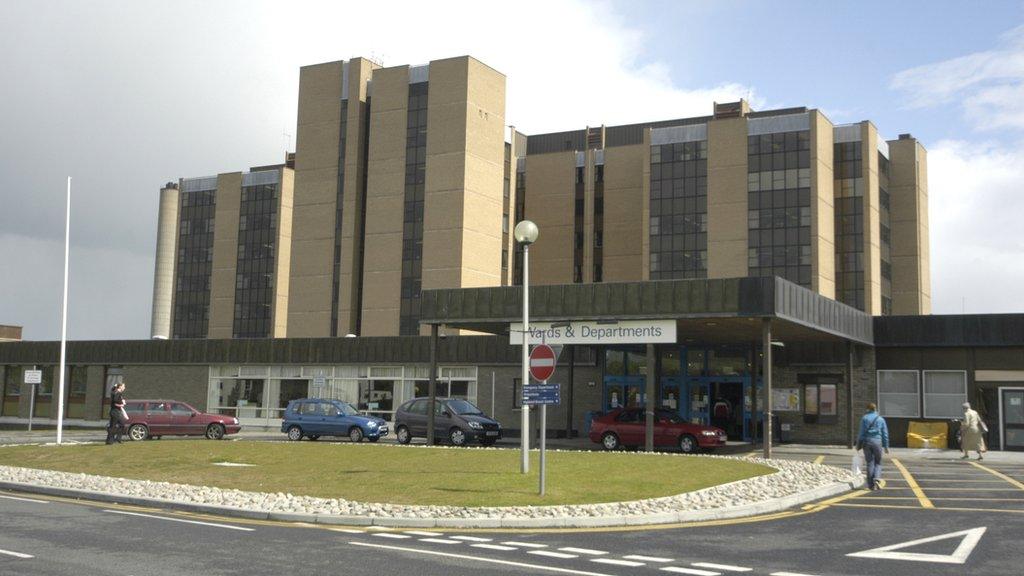Bullying still rife at NHS Highland , GMB claims
- Published
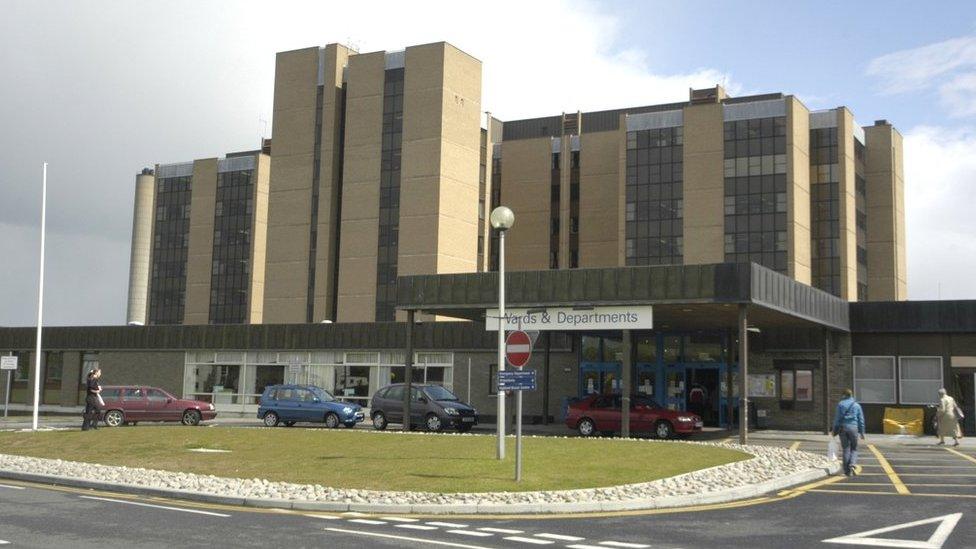
NHS Highland's sites include Raigmore Hospital and its area includes Argyll and Bute
Staff continue to be bullied at NHS Highland, a union has claimed.
The warning from the GMB Union comes as the new chief executive for the health board, Paul Hawkins, begins his role.
Gavin Smith said NHS Highland had "ignored" parts of the Sturrock Report, external, which was commissioned by Health Secretary Jeane Freeman in 2018.
NHS Highland said: "We acknowledge that we have a lot still to do to ensure all of our people treat each other with kindness, civility and respect."
The health board has been dealing with allegations of a "culture of bullying", which were made public in September 2018, and later examined in an independent review led by John Sturrock QC.
'Not good enough'
Mr Hawkins started his first day as chief executive on Tuesday having replaced Iain Stewart, who has only been in post since January 2018, and has moved to a role in Orkney - the health board has now had three new chief executives in the space of 13 months.
Speaking to BBC Radio's Good Morning Scotland programme the union's Gavin Smith said bullying was "absolutely" still going on.
"I speak to members most days, bullying is a very live issue within NHS Highland," he said.
"Here's the big issue: I have staff across the organisation that say they do not notice any change in the culture since the Sturrock Report - that's just not good enough. The bottom line is they [NHS Highland] haven't done enough, and they haven't done it in a way that's credible.
"There isn't any difference, I wish I could say there was, but there genuinely isn't."
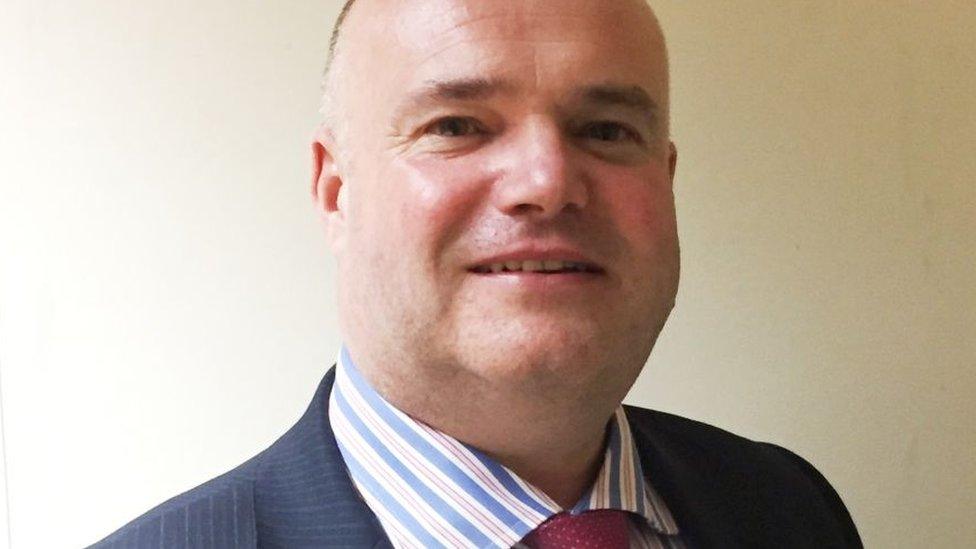
Iain Stewart had only been NHS Highland's chief executive since last January
Mr Smith said there were serious problems with the way the health board was recording incidents of bullying.
"NHS Highland have no way of tracking the number of bullying claims, and they don't appear to have away of joining it up with things like staff turnover, difficulties in recruitment, or staff absence through sickness," he said. "They don't have robust systems in place to make sure they pick these things up - and that's a failure of governance."
The union requested answers from the health board under the Freedom of information Act 2000, asking for the number of bulling cases recorded over the past three financial years.
Mr Smith said the health board had recorded just 24 cases during that time, which he branded "completely not credible", and added that he alone had interviewed more than 100 members with bullying grievances for evidence in the Sturrock report.
"I know for a fact those figures are just not accurate," he added.
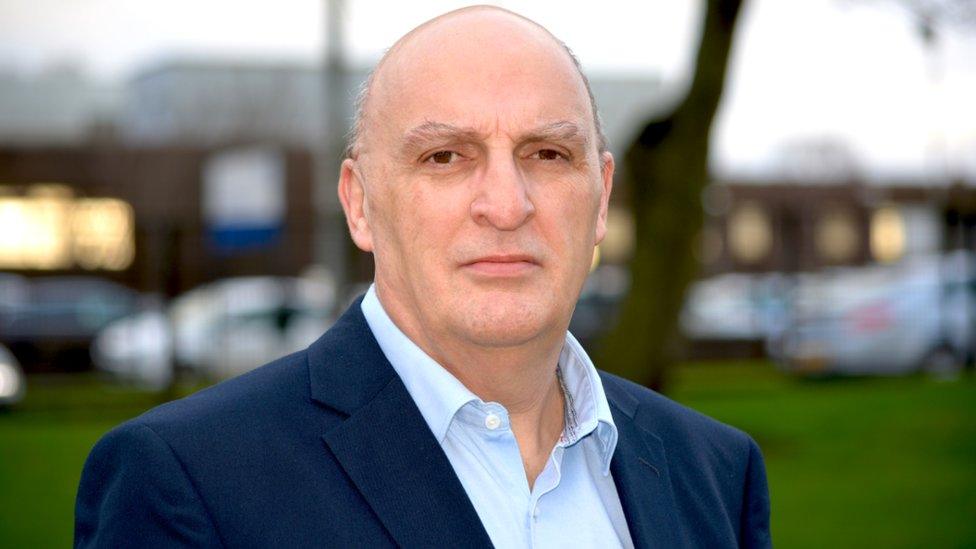
Paul Hawkins is NHS Highland's new chief executive
Asked if bullying was still an issue at NHS Highland, Mr Hawkins said he "did not know that to be the case" as he was still new to the chief executive's role at the board.
He said: "If there are issues of bullying they need to be brought out, and I think the organisation knows that and so we will be on top of that if there are any issues."
Health Secretary Jeane Freeman met whistleblowers earlier this week to work out a new method to deliver compensation to victims, a move which has been welcomed by the GMB.

Bullying claims timeline

A group of senior clinicians called for an inquiry of their claims
26 September 2018: A group of senior clinicians at NHS Highland speak out about what they claim to be a culture of bullying at the health board. The doctors say that for at least a decade there has been a "practice of suppressing criticism, which emanates from the very top of the organisation"
2 October: NHS Highland seeks a resolution to the allegations through a meeting with the clinicians, but the doctors call for the matter to go to a public inquiry
5 November: Health Secretary Jeane Freeman requests an independent external investigation to examine allegations of bullying within NHS Highland
23 November: John Sturrock QC appointed to lead an independent review of the allegations
9 May 2019: Independent review report published

Mr Smith said: "The Sturrock Report was clear there needs to be an independent panel, or a way of measuring the cases that have come forward, to see whether people should get compensation.
"NHS Highland seemingly chose to disregard the Sturrock Report and suggested that existing employees could either go to a tribunal, or ex-employees could launch a court case - which is deeply cynical because a lot of people were time-barred, and then [with] ex-employees - a lot of people couldn't afford that.
"As well as being deeply cynical I also think it was deeply immoral; we welcome Jean Freeman's emphasis that NHS Highland needs to change."
'A lot still to do'
Fiona Hogg, NHS Highland's director of HR and organisational development, said: "Allegations of bullying or inappropriate behaviour are treated very seriously by NHS Highland and we are committed to robustly addressing each and every case which is raised.
"We are a large and complex organisation of over 10,500 colleagues and changing our culture takes time and commitment from everyone involved. We acknowledge that we have a lot still to do to ensure all of our people treat each other with kindness, civility and respect.
"We apologise to those who have experienced bullying or inappropriate behaviour whilst working for NHS Highland and are doing all we can to support them."
She added: "We are working with colleagues, management and our trade union partners to ensure that anyone with concerns can raise these and find a resolution. We have invested in additional support such as mediation and manager training, as well as setting up additional routes for concerns to be raised."
- Published24 January 2020

- Published26 November 2019

- Published25 September 2019

- Published9 May 2019
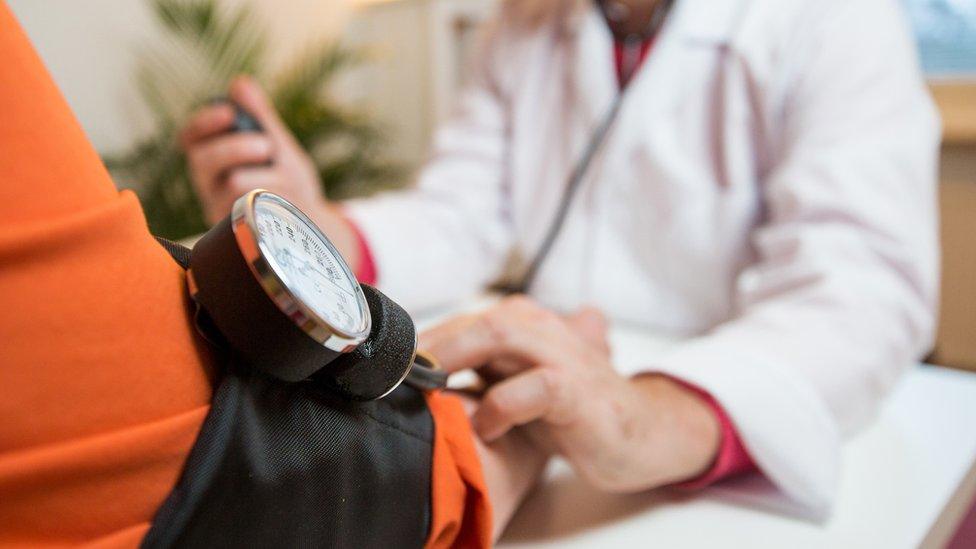
- Published26 September 2018
